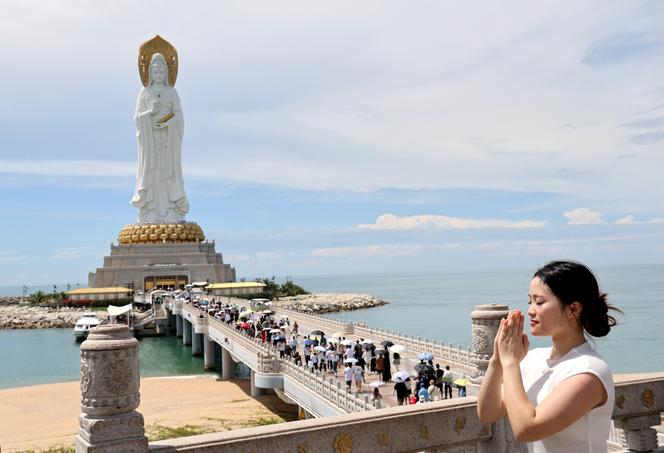

LETTER FROM BEIJING

Foreign tourists have not yet returned to China. In the first half of the year, their numbers were 70% lower than in 2019, before Covid-19. This wait-and-see attitude is no doubt explained by the fact that planes are still too scarce and the country's image has deteriorated. But the three years during which China remained closed in on itself have generated a new phenomenon: the Chinese bourgeoisie, who vacillated between Hong Kong, Japan or Thailand for their vacations until 2019, have discovered that the Chinese countryside is also sometimes worth a detour. From the foothills of the Great Wall to Yunnan, from Sichuan to Guangdong, recently renovated hotels are springing up all over the country, often charming and rarely cheap. They're places where families who can afford it can relax over a weekend.
While rural tourism is nothing new in China, the move upmarket is a novelty. It goes hand in hand with a booming activity: "glamping." A contraction of "glamour" and "camping," this trend, which the Japanese and South Koreans are so fond of, refers to top-of-the-range camping, with sophisticated and expensive equipment, reminiscent of the leisure activities of British colonists in the days of the Indian Empire.
During the Covid pandemic, when cafés were only allowed to serve customers outside, it was not uncommon to see young people in Beijing setting up their mini-tables and mini-folding chairs on the sidewalk and enjoying a latte beside their car as if they were enjoying an unparalleled view. It was an experience they repeated at the roadside as soon as they could get out of town. "The Chinese have favored the countryside all the more because they couldn't leave the country, and the most popular tourist sites were closed to the public or had a limited capacity," noted tourism industry expert Liu Simin.
"There's a rush to the Great West, particularly Xinjiang and Tibet. Previously, my clientele was 90% foreigners. Now it's 90% Chinese. I'm amazed by the speed of the phenomenon. Jeeps can now be seen on trails which, for years, we've only accessed with horses," said Constantin de Slizewicz, founder of the Liotard mission, which has been organizing expeditions to Tibet for a dozen years.
Evidently, the villages can only celebrate this unexpected windfall. At a time when agriculture is in decline and industry has migrated eastwards, this development of the service sector is more than welcome. Thanks to it, many villages are working to enhance their heritage – with competitions organized all over the country – and the beautification of the countryside is a reality that can hardly be disputed. Taking things a step further, some villages are even beginning to organize marathons or sports competitions. These are proving very popular on social networks.
You have 42.21% of this article left to read. The rest is for subscribers only.
